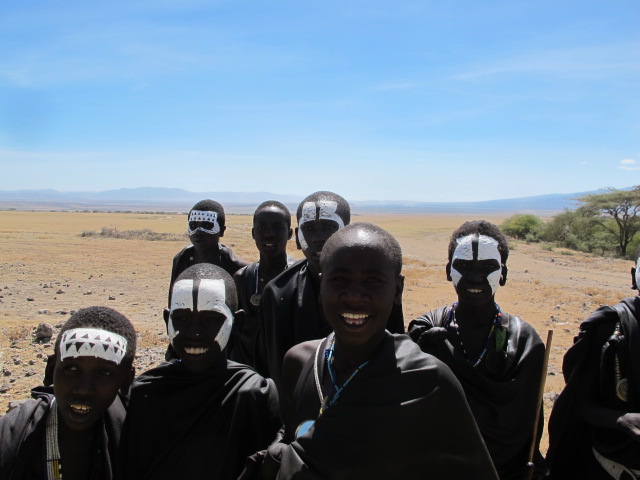In a fun and puzzling Freakonomics radio podcast, Dubner and Levitt explore the ways in which women participate differently in society, or in other words, women are not men. One of the main studies they cite is an interesting piece from Econometrica by Uri Gneezy, Kenneth Leonard, and John List which examines how culture effects competition between men and women. They attempt to understand if its nature or nurture that effects the stark difference between men and women opting to compete.
To do this, they immerse the competition studies in two different tribes: the Khasi in India (a matrilineal tribe) and the Masai in Tanzania (very patriarchal). They set up a simple game where participants were paid to throw balls into a bucket, and were paid up to $3 (4500 TSH) to compete. The game certainly gave insight into the long arm effect of patriarchal culture on reducing women's appetite for competition, but I can't read this paper without thinking about the externalities of participation. The authors admit that they weren't exactly perceived as participating in a partnership for local development:
Gneezy says it wasn’t long before word got around that these “ridiculous Americans” were paying villagers to throw tennis balls into buckets. People came from all over the village to play.
Because I struggled with whether or not to pay people in my own Tanzanian research study, the consequences of participation in this study, without any noted explanation of the fuller purpose of the gender research, seem inappropriate and detrimental. Most Masai villages that I saw were a thunderstorm of land rights debacles, domestic violence, sexually transmitted disease, poor education and dangerous wildlife conflicts. These areas are certainly worth examination and understanding, but what will happen to future researchers in these Masai villages?
It seems to me that these sorts of externalities of paid participation are much more severe when the participants do not see any benefit or meaning in the purpose of the study. Did this article in Econometrica effect gender equity in the Masai study villages? Seems unlikely.
I wouldn't go so far as to pretend that I am not perceived as a white walking pile of money ("white person! give me gift!"), but gaining IRB approval is not a replacement for critical judgement about the consequences of human subject research.
Hat tip: DR
To do this, they immerse the competition studies in two different tribes: the Khasi in India (a matrilineal tribe) and the Masai in Tanzania (very patriarchal). They set up a simple game where participants were paid to throw balls into a bucket, and were paid up to $3 (4500 TSH) to compete. The game certainly gave insight into the long arm effect of patriarchal culture on reducing women's appetite for competition, but I can't read this paper without thinking about the externalities of participation. The authors admit that they weren't exactly perceived as participating in a partnership for local development:
Gneezy says it wasn’t long before word got around that these “ridiculous Americans” were paying villagers to throw tennis balls into buckets. People came from all over the village to play.
Because I struggled with whether or not to pay people in my own Tanzanian research study, the consequences of participation in this study, without any noted explanation of the fuller purpose of the gender research, seem inappropriate and detrimental. Most Masai villages that I saw were a thunderstorm of land rights debacles, domestic violence, sexually transmitted disease, poor education and dangerous wildlife conflicts. These areas are certainly worth examination and understanding, but what will happen to future researchers in these Masai villages?
It seems to me that these sorts of externalities of paid participation are much more severe when the participants do not see any benefit or meaning in the purpose of the study. Did this article in Econometrica effect gender equity in the Masai study villages? Seems unlikely.
I wouldn't go so far as to pretend that I am not perceived as a white walking pile of money ("white person! give me gift!"), but gaining IRB approval is not a replacement for critical judgement about the consequences of human subject research.
Hat tip: DR

 RSS Feed
RSS Feed